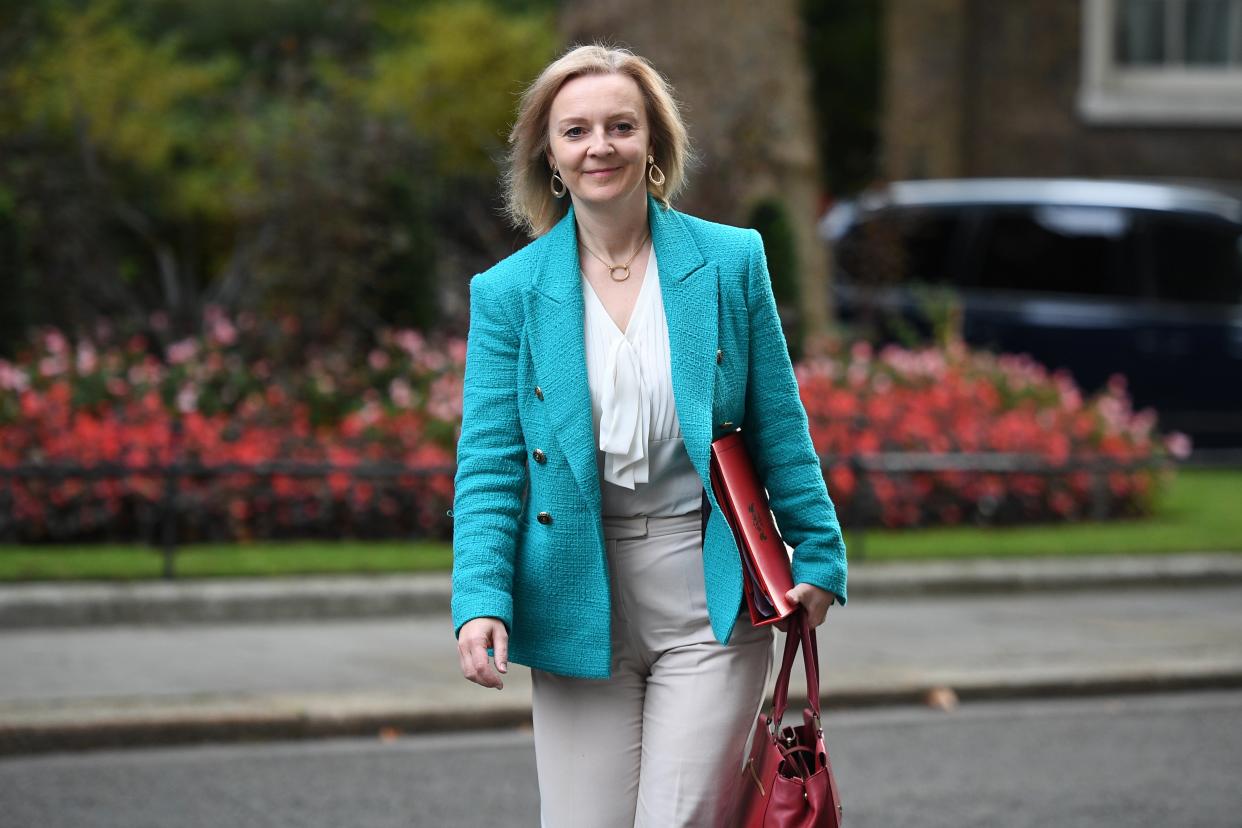Brexit: Anger as ministers use obscure rule to deny MPs a vote on blocking chlorinated chicken imports

An obscure rule is to be used to deny MPs a crucial vote aimed at blocking imports of chlorinated chicken and hormone-fed beef, sparking fresh fears about food quality after Brexit.
Ministers are facing fierce criticism over their tactic to defeat an attempt to give powers to a new watchdog – amid suspicions that future trade deals, particularly with the US, will water down food and animal welfare standards.
The move to prevent debate on a key amendment expected to be backed by Tory rebels in a Commons showdown on Monday has been condemned as “unbelievable” by the peer who introduced it in the Lords.
The tactic was also attacked by the Conservative chair of the Commons environment committee, who told The Independent: “The Commons is wrongly being denied a say on a technicality.”
Neil Parish added: “The government should allow a vote. These are really important matters for the future of food and farming.”
Minette Batters, president of the National Farmers’ Union, urged MPs to find a way to secure “binding commitments that strengthen scrutiny of trade deals and safeguard our animal welfare and environmental standards”.
Ministers will dodge the vote by arguing that giving increased powers to the new Trade and Agriculture Commission – currently temporary and advisory only – will impose an extra cost.
They will argue that goes beyond the powers of the Lords and so refuse a money resolution – preventing the amendment to the Agriculture Bill being called.
Liz Truss, the trade secretary, who opened the door to chlorinated chicken in her trade negotiations with Washington earlier this year, informed senior MPs of the move late last week.
She promised Commons committees earlier scrutiny of trade deals – but this is seen as falling far short of examination by an independent commission, which would have to sign off those agreements.
Lord Curry of Kirkharle, who carried out a landmark food review for Tony Blair and who put forward the successful Lords amendment, said: “It’s unbelievable and a huge mistake by the government.
“I can’t think of an issue in recent times which has so much public support. For the government not to recognise that, by not allowing my amendment, is really disappointing.”
The peer ridiculed the idea of extra costs, saying: “They are minuscule, just one or two people to work at the commission – we are not talking about millions of pounds.”
Mr Parish agreed, saying: “The commission isn’t costing anything at the moment, so I don’t see why we need a separate money resolution for it to be extended to look at new trade deals.”
Ms Truss was forced to concede the setting up of the body in the summer, but it can only advise the government and will be wound up after six months.
The amendment would retain it for four years and make it truly independent. Supporters believe it would, if given real teeth, never sanction lower standards, achieving the “same objective” as an outright legal guarantee.
MPs will vote on Monday on a separate amendment, passed in the Lords, to impose that strict legal bar on diluting existing standards, but it is thought to be less likely to pass.
Ms Truss has argued the Agriculture Bill is the wrong vehicle for such a move, instead urging MPs to trust the government when it says it will not cut standards.
However, critics believe she simply does not want her hands tied – noting the UK proposed allowing in chlorinated chicken and hormone-fed beef in the US trade talks, albeit with higher tariffs.
In the Commons on Thursday, Ms Truss criticised a “blanket ban” on food products not complying with British farming regulations, telling MPs: “I want to make sure our farmers are able to continue with their high standards, but I don't want to stop developing countries exporting their goods to us.”
The controversy comes after Jamie Oliver stepped up his warning of an influx of cheap food if ministers are able to prevent “proper parliamentary scrutiny”, saying: “I don’t like the smell of it.”
“All we’re asking for is debate in Parliament and not a backdoor to do a quick deal. We’re asking for honest, clear, lawful debate,” the celebrity chef told the BBC.
The US has made opening the door to its lower-grade agricultural goods a red line. Mike Pompeo, the US secretary of state, said it must be part of any deal, during a visit in January.
A government spokesperson declined to discuss why ministers were using the manoeuvre to block a vote, but insisted that the government had “been clear it will not sign a trade deal that will compromise on our high environmental protection, animal welfare and food standards”.
The spokesperson said that “claims to the contrary are unhelpful scaremongering” and insisted the UK was a “world leader” in the field.
They added: “Chlorinated chicken and hormone injected beef are not permitted for import into the UK. This will be retained through the EU Withdrawal Act and enshrined in UK law at the end of the transition period.
“The government is focused on getting trade deals that protect and advance the interests of our farmers and consumers. If a deal isn’t the right one, we will walk away.”
Read more
Is Truss losing her battle to let chlorinated chicken into the UK?
Live: EU pours scorn on UK Brexit ‘spin’
PM must immediately introduce emergency restrictions, Indy Sage urges
Fury over failure to provide details of coming Covid lockdown in north
PM appoints Allegra Stratton as new White House-style spokesperson

 Yahoo News
Yahoo News 
